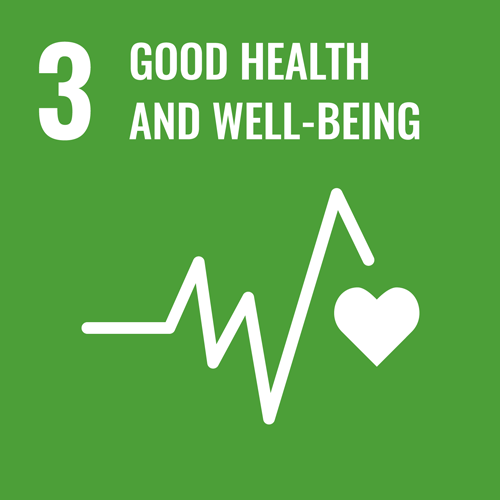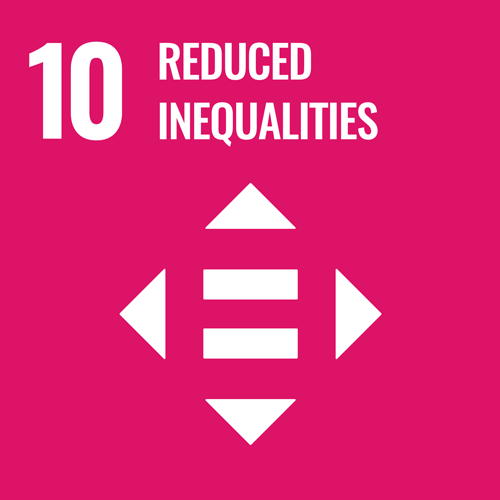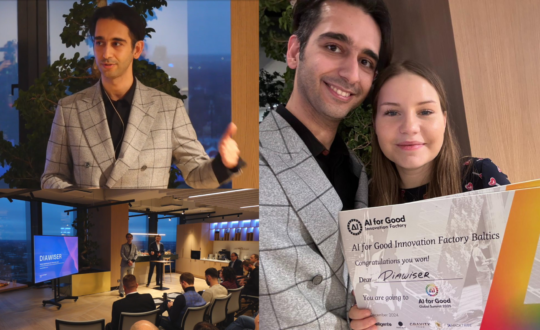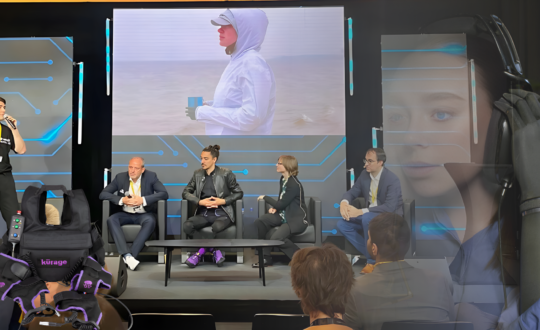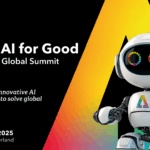Mental health matters. According to the World Health Organization, (WHO) 1 in 8 people in the world live with some form of mental health disorder.
AI for Good’s recent AI for Health Discovery webinar explored an important question and use case on the application of Artificial Intelligence: How can AI improve mental health for 100 million people within 5 years?
As we’ve grappled with the stark realities of mental health during the COVD pandemic, the value of good mental health as fundamental to healthy individuals and societies is more widely realized. However, we have been collectively slow to recognize the human and economic burdens that occur from failing to prioritize mental health globally despite evidence that shows the prevalence of mental disorders are increasingly common. Luckily, recent developments in artificial intelligence (AI) are currently being used to tackle mental health challenges.
Andrew Welchman, Executive Vice President for Impact, at Ieso, an online therapy platform, spoke to ITU on the use of AI, and the challenges of applying it to mental health. Due to the inexact language of mental distress, “there are very few unique symptoms for a particular condition, making it harder for us to have a clear route forward in terms of providing intervention because we haven’t got a good understanding of what people are suffering from.” For example, a recent paper by Daniel Barron found that there are 500,000 ways to be diagnosed with major depressive disorder within the standard manual for mental health diagnosis.
Another reason the mental health challenge is so difficult to solve is because the demand for help surpasses the supply of support we have. Additionally, the quality of care and treatment varies as there isn’t often a rational basis for a particular choice of treatment and no incentives for preventative actions.
A critical moment in global mental Health
“We do have a mental health crisis and that’s a decision point and we need to be the people that start making that decision in order to make it better,”
stressed Welchman. So how can we do that? That’s where AI comes in to help drive changes in the system.
To learn more about how AI is helping to solve the mental health challenge watch the AI for Good session recording
The first step in making an impactful and effective change in mental health is to look at real-world data. This will help us understand and realistically connect clinical trials to how mental health works in the real world for real people. Ieso has done this through one-to-one mental health treatment (Cognitive Behavioural Therapy) via an AI enabled telehealth platform. In which patient and clinician communicate using a text interface. Impressively, the platform also uses AI tools for clinical decision support, quality control, workflow and clinician network management.
“When this platform was launched many people said that won’t work, for therapy to work you need to be sat in the same room as somebody” said Andrew. However, despite the previous criticism he pointed out the reasons why the platform has been successful “we found many people prefer the text-based format because it means they can do this in their own home, they can do it discreetly so if other people are around in their environment they won’t hear the conversation. The fact that they [patients] don’t need to say things out loud and don’t need to see the person that they’re working with for their therapy can actually be helpful in disclosing more and getting to the deeper roots of the problem.”
Andrew also identified the way mental health treatment delivery has changed over the last two years due to the pandemic, “of course when covid hit, we went from about 7% of therapy being delivered online to over 90% of therapy being delivered online within a matter of months.”
Overall, technology can help increase access to mental health care by eliminating long waiting lists “our ambition is that you come in and say you need care and we can give you access to something on the same day,” said Andrew. While clinicians and treatment are expensive, we can use scalable technology to change this and lower the costs per patient.
Another way Ieso has improved mental health treatment with AI is by identifying the “active” ingredients in therapy (what makes it effective and leads to patient recovery) via building an AI based analysis engine called a “hierarchical deep learning model”. This fascinating tool looks at the patient transcripts and turns private language into anonymous tags to find the specific elements between the therapist-patient exchange that were effective and ineffective to improve overall accuracy.
In order to apply these technological insights to help 100 million people’s mental health beyond the global north and across the globe Andrew has identified three key elements it would take; access to timely and high-quality care, affordability on a global scale and lastly making it acceptable and effective for diverse groups in order to meet the needs of different communities and conditions.
However, throughout the process and debate of harnessing AI applications to improve mental health care, Andrew mentioned that it is crucial to include and listen to people with lived experience and mental health conditions because “they can help us come up with innovative new solutions that are focused on the benefits for people who are experiencing poor mental health.”
Data ethics was another issue that was discussed during the webinar, when asked about patient data consent during the Q&A session Andrew answered “we want to make sure that we’re being completely transparent with people in terms of saying at some point in your patient journey you may be speaking to a human therapist and at other points you’ll be talking to an AI, and you will always who’s at the end of the line with you because we’re not trying to hide anything with this technology. These are complicated technologies and we’re working very hard to make sure that they are safe and effective.”
“We now have the data and insights to really make significant breakthroughs in mental health. I hope that in five to ten years time we won’t be talking about depression anymore. We’ll be thinking about the specific subtypes and ways to identify those reliably. That effort isn’t just about psychologists or data scientists, it actually needs an interdisciplinary coalition of researchers to do that.”
However, Andrew also gave a necessary reminder saying that all of us must work together to tackle this problem “the important point throughout this talk is, when I’m talking about this provocation of 100 million minds, that’s not something that I think we can do by ourselves, we need to be able to join up and do this together.”




